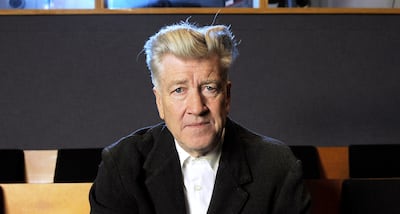Angelo Badalamenti, the composer best known for creating otherworldly scores for many David Lynch productions, including Blue Velvet, Twin Peaks and Mulholland Drive, has died. He was 85.
He died of natural causes on Sunday, his family said.
Born in Brooklyn in March 1937 to a fish market owner father with a musical background (a percussionist in Sicily), Badalamenti grew up listening to Italian opera with his family, started piano lessons at age eight and went on to earn a bachelor’s and master’s degree from Manhattan School of Music. During the summers he would play piano at resorts in the Catskills for the Borscht Belt acts.
After college, he taught middle school. He composed a Christmas carol for his students that ended up on PBS and essentially launched his career in entertainment — he also wrote songs for Nina Simone (Another Spring) and Nancy Wilson (Face It Girl, It’s Over). He penned lyrics for tracks for films such as Gordon’s War and Law and Disorder, but his big break came in 1986 when, through a series of industry connections starting with unit manager Peter Runfolo, he was asked to help Isabella Rossellini sing Blue Velvet for Lynch’s film.
“They were shooting down in North Carolina, and so they flew me down to meet with Isabella and to see what I could do. When I got there, we went into a little room with just Isabella and me and a piano. I worked with her for two or three hours straight until we got a good take on a small recorder,” he said in an interview with Culture.org. “David was shooting the last scene. We brought him the cassette tape. He put on his earphones and right away said, 'That’s the ticket! This is peachy keen!' I had to ask the line producer what peachy keen meant.”
He also ended up writing the song Mysteries of Love and found Julee Cruise, who died earlier this year, to sing it, starting a long collaboration between the trio that would extend to Lynch’s seminal series Twin Peaks.

“David felt that the music of Twin Peaks would have to cover a lot of ground, a wide range of moods: sadness, passion, ecstasy, love, tenderness and violence. He wanted the music to be dark and abstract,” he said. “He asked me for music that would tear the hearts out of people.”
Badalamenti worked with other directors too, including Jane Campion (Holy Smoke!), Danny Boyle (The Beach), Paul Schrader (The Comfort of Strangers) and Walter Salles (Dark Water). He also wrote The Flaming Arrow Torch Theme for the 1992 Barcelona Summer Olympics and the theme for Inside the Actors Studio. But it’s his work with Lynch that hovers above them all, which would include The Straight Story, Twin Peaks: Fire Walk With Me, Lost Highway and Mulholland Drive.
“He’s got this musical soul, and melodies are always floating around inside,” Lynch told People magazine in 1990. “I feel the mood of a scene in the music, and one thing helps the other, and they both just start climbing.”
Badalamenti also got to exercise his acting chops in a memorable scene in Mulholland Drive, where he plays a gangster who is very particular about his espresso.
When it came to how he approached his scores, he said he was always at the service of the director's vision.
"Sometimes you want the music to go along with what’s happening on screen. Other times I love the idea of the music going against what’s happening — that’s often a cooler way to do things," he told NME in 2011.
“I always have one major question for a director when I compose a soundtrack: what do you want your audience to feel? Do you want to scare ... them? Squirm in their seat? Feel beautiful? And how they answer that question gives me cues to work on. I translate their words into music.”
Scroll through the gallery to see other famous people we've lost in 2022







































































































